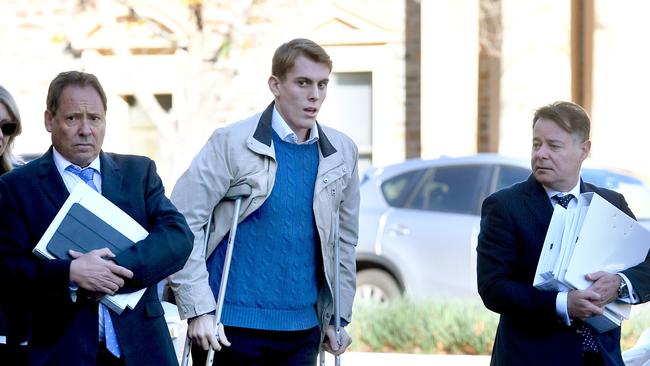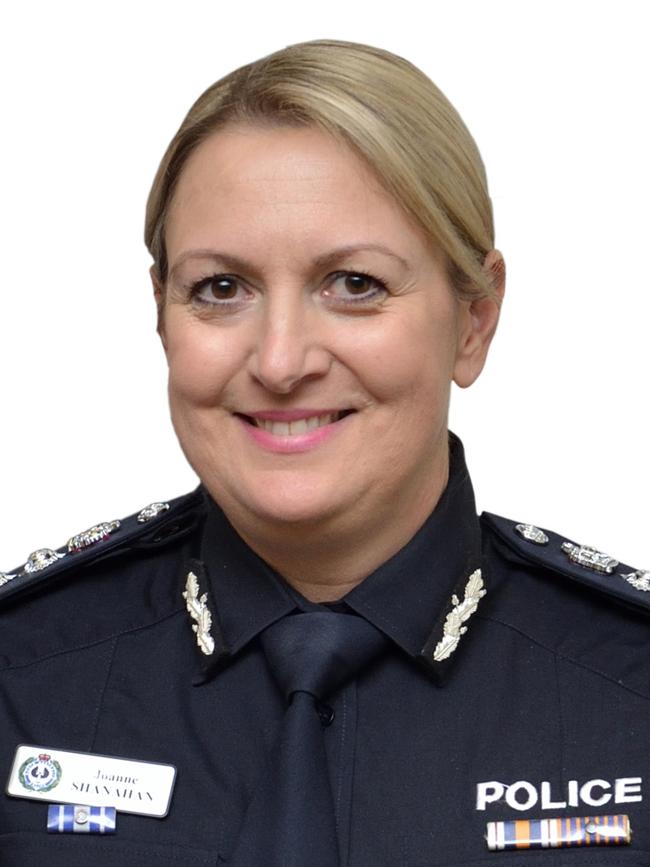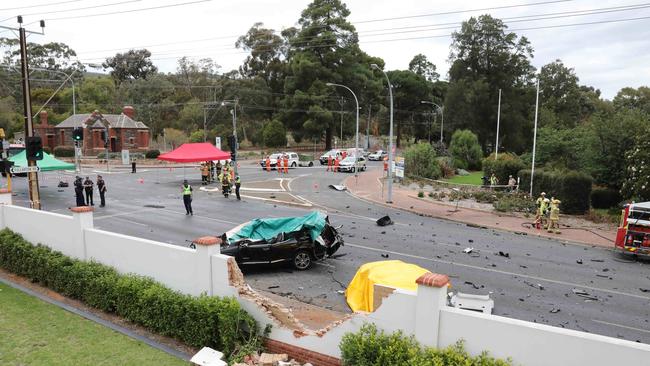Court told Harrison Kitt may have been affected by psychosis at time of horror crash that killed Joanne Shanahan and Tania McNeill
The young driver who allegedly killed two women including an SA Police chief superintendent in a high-speed crash has faced court for the first time, as prosecutors outlined new details about the investigation.

Police & Courts
Don't miss out on the headlines from Police & Courts. Followed categories will be added to My News.
- Tears and tributes at the funeral for Joanne Shanahan
- Police charge Harrison Kitt over deadly Urrbrae crash
A young driver tested negative for both drugs and alcohol after allegedly killing two women in a horror high-speed crash, a court has heard – but may have been “manic or psychotic”.
On Wednesday morning, Harrison Kitt arrived at the Adelaide Magistrates Court flanked by family and legal counsel – and using crutches to walk with one leg heavily braced.
Kitt, 20, of Urrbrae, has yet to plead to two aggravated counts of causing death by dangerous driving.
The charges arise from a crash at Fullarton Rd and Cross Rd, Urrbrae, in April that killed SA Police Chief Superintendent Joanne Shanahan and Tania McNeill.
Kitt’s parents have since said he had displayed uncharacteristic behaviour that alarmed his family and friends in the days prior to the high-speed crash.
He was charged in May and remanded on continuing bail – at the time, the court heard he was receiving treatment for both injuries and his mental health.


On Wednesday, prosecutor Patrick Hill asked the court to adjourn Kitt’s matter for eight weeks so the case against him could be finalised.
“We are seeking reports from medical personnel who treated the accused in the days and weeks after the crash,” he said.
“We are also seeking statements regarding his actions and behaviours in the weeks leading up to the crash.
“All of this will be relevant to any formal inquiry that may subsequently occur into the accused’s mental health at the time.
“If there’s to be a suggestion that the accused suffered from some sort of manic episode or psychosis at the time, it will be important to know any underlying factors.”
Under state law, any person found to have been mentally incompetent, due to a medical condition or illness, at the time of an offence is deemed to be not guilty.
If such a declaration is made, that person would be subject to a limiting term – or period under mental health supervision – equal to the jail sentence that would have applied.
The maximum penalty for an aggravated count of causing death by dangerous driving is life imprisonment.
Mr Hill said Major Crash investigators also needed time to complete their “complex reconstruction” of the crash scene, and to estimate Kitt’s speed at the time.
He said the “comprehensive” police investigation had already yielded 90 witness statements.

David Edwardson QC, for Kitt, agreed eight weeks was required.
“In short, the parties have been co-operating as you may well understanding in these difficult circumstances,” he told the court.
“We have already got a zero blood alcohol and drug test result at the time (of the incident), which is significant.”
He said state law barred the parties from seeking reports about Kitt’s mental competence until his matter reached the District Court.
“However, the prosecution needs to be in a position to make an informed decision as to how this matter is going to go forward,” he said.
Magistrate David McLeod granted the adjournment and remanded Kitt on continuing bail to face court again next month.
Kitt did not comment outside court.

